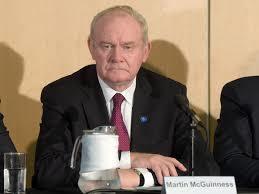
The renewable heating industry was prematurely aware of planned cuts to a lucrative green energy scheme in Northern Ireland and asked politicians to delay it, a senior civil servant has said.
A spike in applications led to massive over-spending on the lucrative wood boiler incentive which was supposed to be funded solely by Westminster.
Civil servants at the time did not realise how serious it was.
The senior official in the Economy Department said influence was exerted from others in the DUP via a special adviser who wanted to keep the scheme open at the higher rate of payment.
Dr Andrew McCormick said: “The consequence is very serious because this shows that there was premature awareness of the potential for the tariff to be reduced and the message went within the sector – get in quick.”
The “ash for cash” scandal led Stormont deputy first minister Martin McGuinness to resign from powersharing with the DUP in protest and forced the collapse of powersharing and fresh elections.
Recipients of the Renewable Heat Incentive (RHI) were receiving about £1.60 for every £1 spent on wood fuel.
The scheme has landed the public service in Northern Ireland with a potential £490 million bill over the next 20 years.
Civil servants wanted to cut the rate in July 2015.
It was eventually reduced that November but not before a massive surge in the number of applications.
Mr McCormick said because the RHI was originally supposed to be entirely funded separately by the Treasury, there was a misconception that this would not have a cost to public spending in Northern Ireland.
He told Stormont’s Public Accounts Committee (PAC): “Around the period of July there is evidence of some premature information being made available to the industry.”
It was possible some of the pressure coming through others in the DUP via former economy minister Jonathan Bell’s special adviser was because “the industry was saying to others in the political class that we hear something is about to happen, can you do something about it and can you give us longer?
“That is purely inference, I have no evidence for that, it just seems a not unreasonable inference that that might have happened.”
He said the decision to delay a reduction in the tariff and the influence of Mr Bell’s adviser Timothy Cairns created the conditions for the overspend, the “perfect storm”.
Mr McCormick said the opportunity was there and it was understood to at least a degree by the industry why it was worthwhile getting involved.
He admitted officials were “blind” to the consequences.
He said documents had appeared with him anonymously after Christmas which required further investigation.